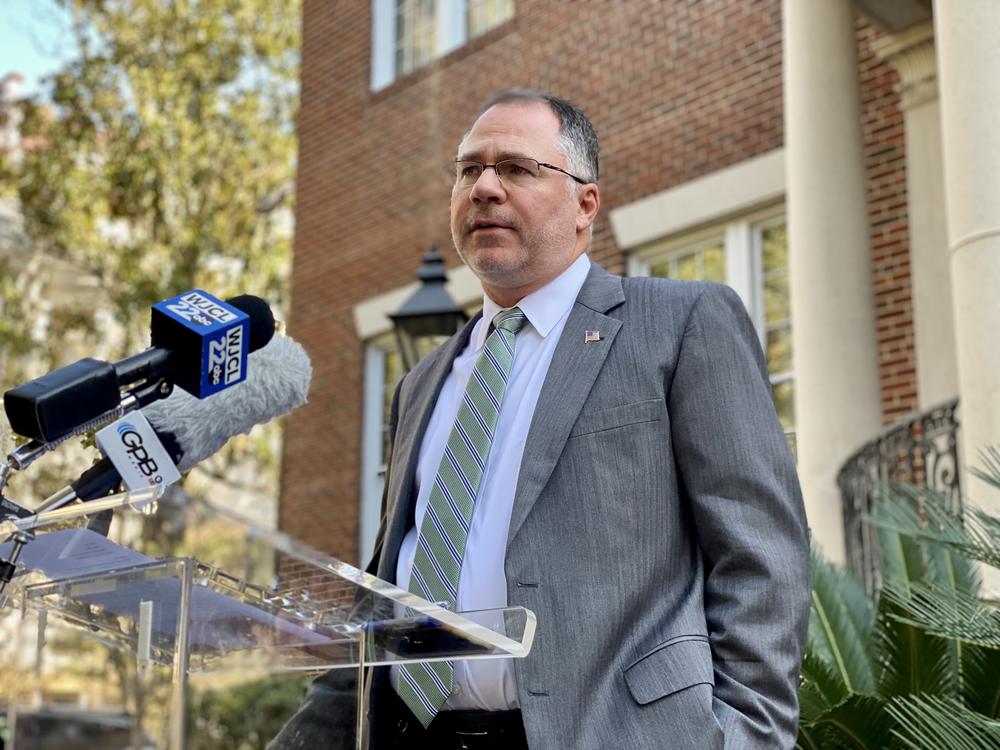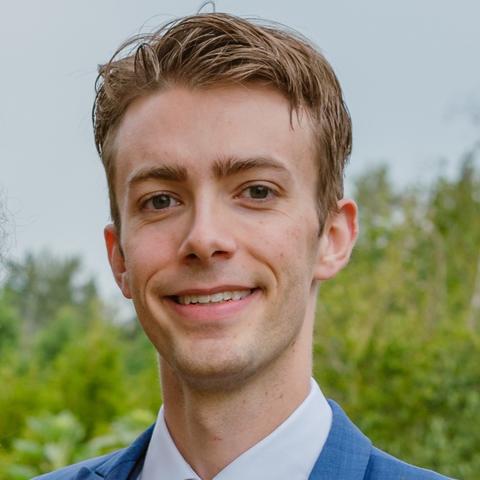
Caption
U.S. Attorney for the Southern District of Georgia David Estes speaks in downtown Savannah on Dec. 8, 2022, about federal funding for Tharros Place, a shelter under development for child survivors of human trafficking.
Credit: Benjamin Payne / GPB News

